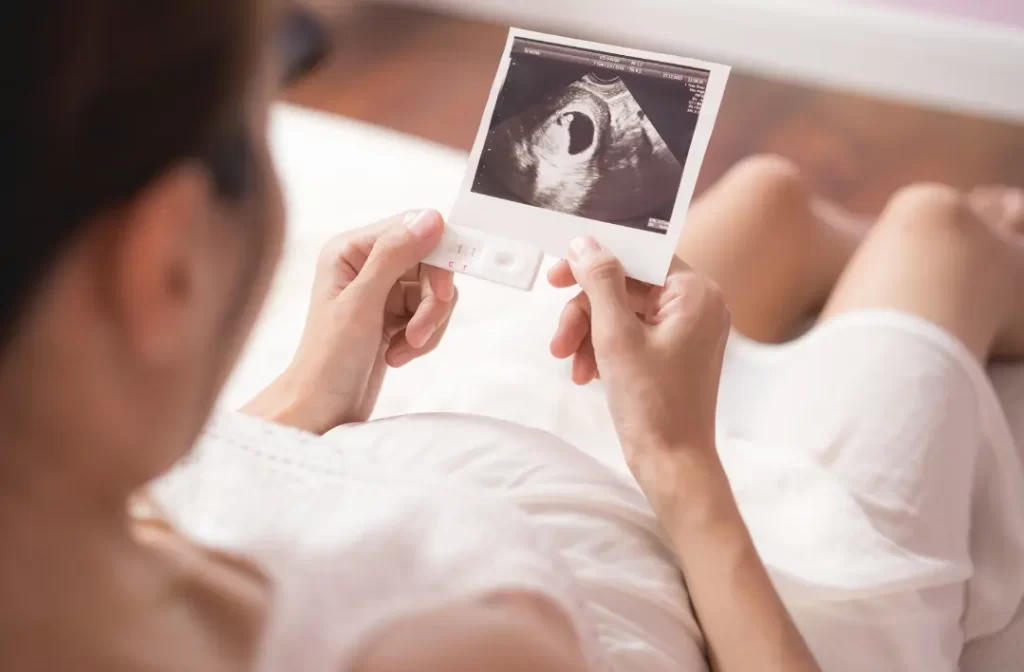Are you deciding to try for a baby? If yes, how can you improve your chances of conceiving? You should look out for signs of fertility in women, like checking your ovulation period, which can be helpful to know so that you can schedule your sex with your partner appropriately and improve your chances of getting pregnant.
What is ovulation?
Ovulation is a process where a mature egg is released through your ovary. It usually occurs 12 to 16 days before your period begins, so if you have a regular menstrual cycles, you may be able to predict when you’ll ovulate. This is how a fertile woman is likely to be at each stage of her menstrual cycle :
- 1–7 days – during your period – least fertile stage
- 8–9 days – after your period – possible to get pregnant
- 10–14 days – around ovulation – you are most fertile
- 15–16 days – after ovulation – possible to get pregnant
- 17–28 days – thickening of the uterine lining – less fertile – unlikely to get pregnant 1
You can also track your ovulation by looking out for the following things:
- Changes in your cervical mucus – You may experience more wet, clear, and slippery vaginal discharge.
- Changes in your body temperature – There is a slight rise in body temperature that you can detect with a thermometer.
- Use ovulation prediction kits – Your hormonal levels increase around ovulation, which can be identified using ovulation prediction kits that measure hormone levels in your urine.
All of these methods combined will likely give you the most accurate results. Other symptoms associated with ovulation include breast tenderness, bloating, and mild tummy pain. Although, these are not reliable ways to predict ovulation. 2
Fertility problems in females:
Infertility is when you are struggling to get pregnant after six months to a year of unprotected, regular sex, depending on your age. Infertility does not always imply that you are “sterile” or that you will never be able to have a child. Half of the couples who get help can have a child on their own or through medical help. Fertility treatment can aim to restore fertility through medicine or surgery or help you get pregnant using sophisticated techniques.
Symptoms of infertility:
Changes in the menstrual cycle and ovulation in women may be signs of a disease linked to infertility. These are:
- Abnormal periods, which are heavier or lighter bleeding than usual
- Irregular or no periods
- Painful period, causing pelvic pain or cramps
It could be due to hormonal reasons; such symptoms include:
- Skin changes
- Changes in sex drive
- Hair growth on lips, chest and skin
- Loss or thinning of hair
- Weight gain
Some other symptoms include:
- Milky white discharge from nipples (without breastfeeding)
- Pain during sex
There could be many other factors causing infertility, and they can have other symptoms.3
Causes of low fertility in females:
- Problems with fallopian tubes –The most prevalent cause of “tubal factor” infertility is a pelvic inflammatory disease caused by chlamydia and gonorrhea. Also, they can get blocked by scar tissue due to an infection or because of endometriosis.
- Problems with the uterus – include polyps or fibroids, septum or adhesions inside the uterine cavity. Polyps and fibroids can develop at any stage, but other abnormalities (such as a septum) are present from birth.
- Problems with ovulation – due to hormonal imbalances, eating disorders, substance abuse, smoking or drinking, being overweight or underweight, thyroid problems, severe stress and pituitary tumours.
- Problems with the egg number and quality – due to menopause or some eggs can have the wrong number of chromosomes and cannot fertilise to grow into a healthy fetus.
Your doctor will need to know about your menstrual cycles, past pregnancies, miscarriages, pelvic pain, unusual vaginal bleeding or discharge, and other medical histories. They can also ask if you have had any past pelvic or sexually transmitted infections (STIs).
Fertility treatments:
Once your doctor has diagnosed female infertility and determined the cause, you have several treatment options. Your treatment options depend on infertility causes.
For example, surgery is used to treat structural problems, while other problems (ovulation issues, thyroid conditions) can be treated using hormonal medications. Many patients will require artificial insemination (injecting sperm into the uterus after ovulation) or in vitro fertilisation (eggs with sperm will be fertilised in the lab to make embryos, then transferring the embryo into the uterus). Adoption and gestational surrogacy may also be viable options for women wanting a family.
It is impossible to predict or prevent most types of female infertility. But, in some cases, you can control the risk factors causing infertility to prevent this condition. For example, reduce alcohol use and smoking, maintaining a healthy weight and developing good exercise habits may be beneficial for good fertility in females. It’s critical to see your doctor frequently to discuss risks you causing low fertility in females.4 5





